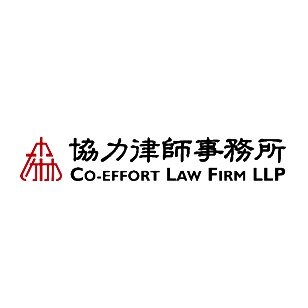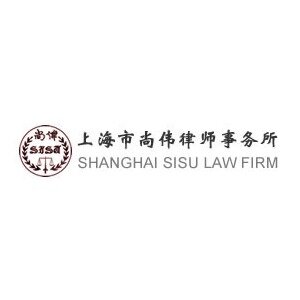Best Creditor Lawyers in Shanghai
Share your needs with us, get contacted by law firms.
Free. Takes 2 min.
List of the best lawyers in Shanghai, China
About Creditor Law in Shanghai, China
Creditor law in Shanghai, China, pertains to the legal regulations and mechanisms that govern the rights and obligations of creditors-individuals, companies, or institutions to whom money is owed. These laws define how creditors can pursue debt repayment, the prioritization of debts, and the recourse available when a debtor fails to pay. The legal framework covers various procedures, including debt collection, foreclosure, bankruptcy, and the enforcement of judgments. Creditors may be involved in secured transactions, where debts are backed by collateral, or unsecured debts.
Why You May Need a Lawyer
Individuals and businesses in Shanghai may require legal help in creditor issues for several reasons. If you are a creditor, you might need a lawyer to draft or review loan agreements, handle debt collection procedures, navigate bankruptcy proceedings of a debtor, protect your rights during a debtor's restructuring, or enforce a court judgment. On the flip side, if you owe debts, legal assistance can be crucial to negotiate with creditors, challenge improper debt collection practices, or reorganize your debts through legal mechanisms such as bankruptcy.
Local Laws Overview
Shanghai's creditor laws are influenced by overarching Chinese legal principles but include local regulations and court practices. Key aspects include:
- The People's Republic of China Property Law, which lays down rules on secured transactions and collateral.
- The PRC Enterprise Bankruptcy Law, governing the bankruptcy proceedings including reorganization, compromise, and liquidation.
- The PRC Civil Procedure Law, outlining the process of litigation, including debt collection and enforcement of judgments.
- Local regulations and administrative rules that may specify procedures for the collection and auction of assets.
It is important for creditors to adhere to the legal framework to ensure their actions are legally tenable, while debtors should be aware of their rights within these laws to avoid unlawful treatment.
Frequently Asked Questions
What legal actions can a creditor take if a debtor does not pay in Shanghai?
Creditors may issue a demand letter, negotiate repayment plans, and ultimately initiate legal proceedings to obtain a court judgement or arbitration award for property seizure or remuneration.
How is the priority of debts determined in Shanghai?
Debt priority is generally based on the provisions of the Enterprise Bankruptcy Law, with secured creditors usually having priority over unsecured ones. Wages, taxes, and social insurance premiums can have a special priority.
Are there any restrictions on how creditors can collect debts?
Yes, creditors must follow regulations that prohibit harassment, invasion of privacy, and other illegal practices during debt collection.
Can foreigners act as creditors in Shanghai?
Foreigners can act as creditors, but they must comply with Chinese laws regarding lending and must register security interests where necessary.
What is a secured transaction?
A secured transaction is a loan or a credit arrangement where the debtor provides collateral that the creditor has a security interest in, to ensure repayment of the debt.
How does bankruptcy affect creditor rights in Shanghai?
In a bankruptcy proceeding, creditor rights may be altered, often resulting in a stay of collection activities and potential reduction or restructuring of the debt.
What is the statute of limitations for debt collection in Shanghai?
The statute of limitations for debt collection in China is generally three years, but this can vary depending on the nature of the obligation and may be tolled under certain circumstances.
Can a creditor seize personal property for debt repayment?
Under certain conditions and with a court order, a creditor can seize personal property. However, there are exemptions and legal processes that must be followed.
Do creditors have to go through the court to collect a debt?
While not always necessary, involving the court can formalize the debt collection process and empower the creditor with legal enforcement mechanisms.
What methods of debt restructuring are available for businesses in Shanghai?
Businesses can engage in private negotiations with creditors, or undergo judicial reorganization or bankruptcy proceedings to restructure their debts.
Additional Resources
For those seeking legal advice in creditor matters in Shanghai, the following resources may be helpful:
- The Shanghai High People’s Court for official guidance and policies.
- The Shanghai Municipal Bureau of Justice for local legal assistance and referrals.
- The All China Lawyers Association (ACLA) for finding qualified lawyers specializing in creditor laws.
Next Steps
If you require legal assistance as either a creditor or debtor in Shanghai, it's important to take prompt action. Begin by gathering all relevant documentation related to the debt or claim. You should then consult with a lawyer who has expertise in Shanghai's creditor law. They can offer specific guidance on your rights and responsibilities and represent you in negotiations or legal proceedings. Remember to check the credentials and experience of any legal professional you wish to engage to ensure they are suited to address your particular needs in the field of creditor law.
Lawzana helps you find the best lawyers and law firms in Shanghai through a curated and pre-screened list of qualified legal professionals. Our platform offers rankings and detailed profiles of attorneys and law firms, allowing you to compare based on practice areas, including Creditor, experience, and client feedback.
Each profile includes a description of the firm's areas of practice, client reviews, team members and partners, year of establishment, spoken languages, office locations, contact information, social media presence, and any published articles or resources. Most firms on our platform speak English and are experienced in both local and international legal matters.
Get a quote from top-rated law firms in Shanghai, China — quickly, securely, and without unnecessary hassle.
Disclaimer:
The information provided on this page is for general informational purposes only and does not constitute legal advice. While we strive to ensure the accuracy and relevance of the content, legal information may change over time, and interpretations of the law can vary. You should always consult with a qualified legal professional for advice specific to your situation.
We disclaim all liability for actions taken or not taken based on the content of this page. If you believe any information is incorrect or outdated, please contact us, and we will review and update it where appropriate.












